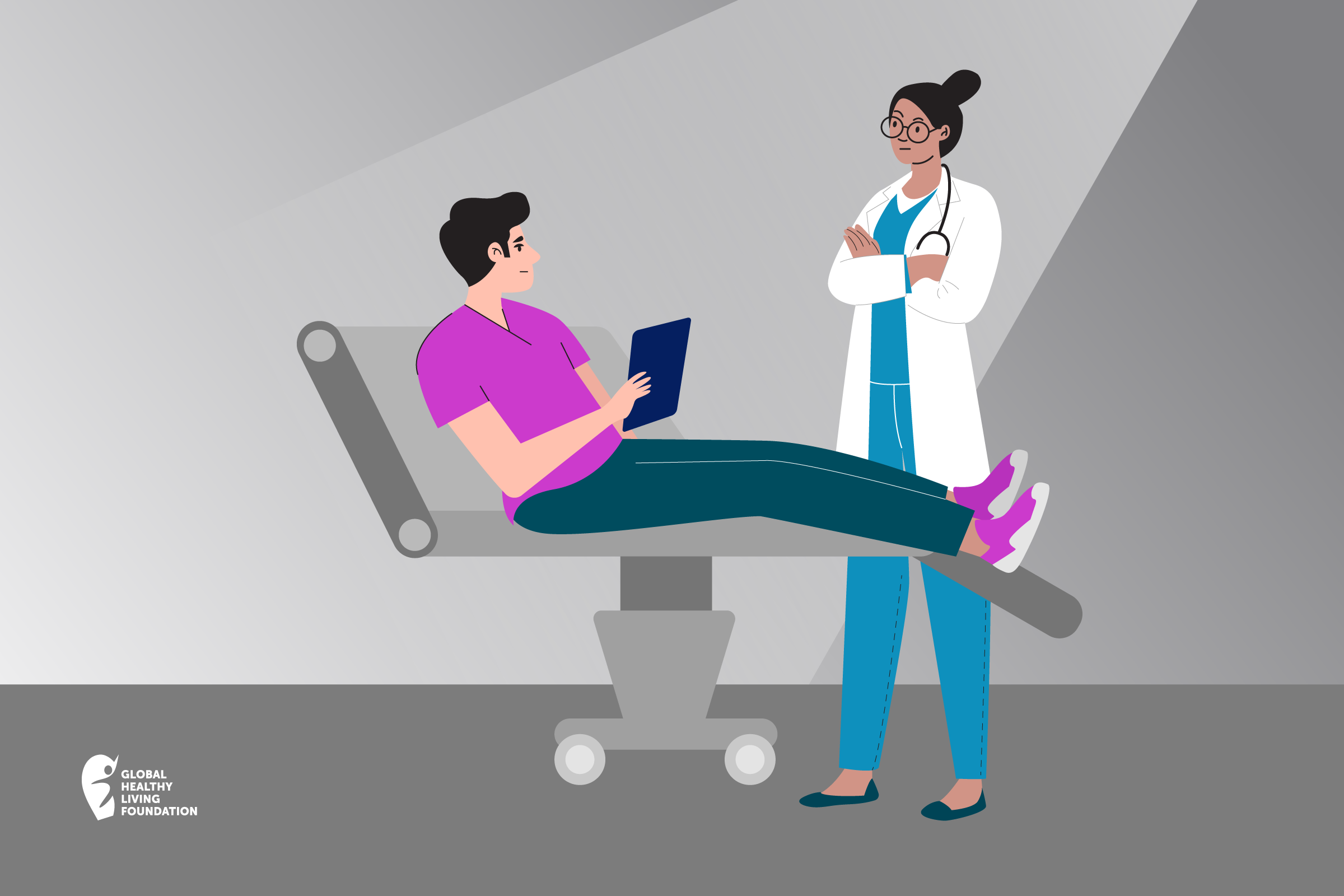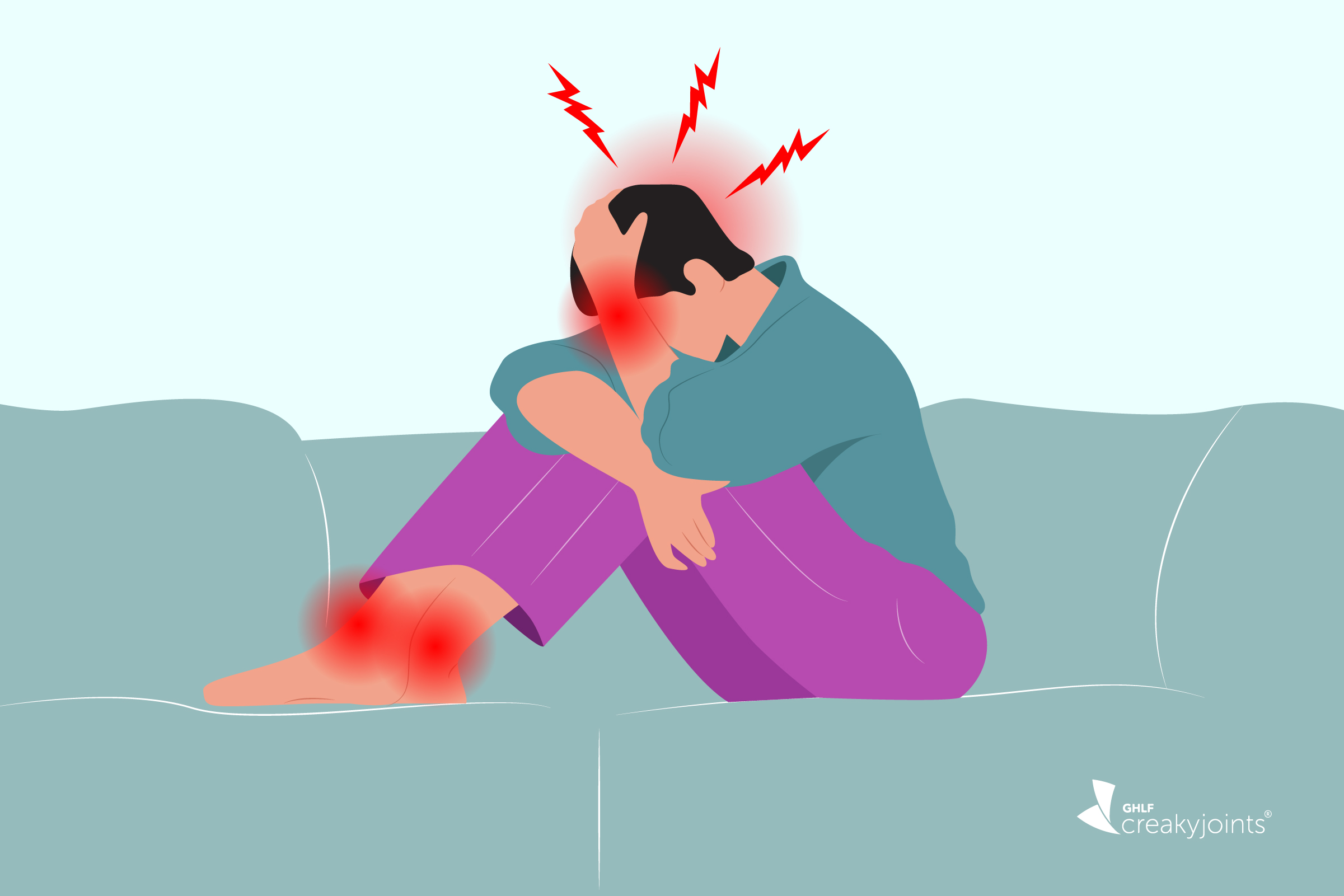“I couldn’t just ‘bounce back’ because my condition wouldn’t allow it. Living with chronic illness goes beyond what my usual coping strategies and support network can handle.”
Doctors, Gaslighting, and Advocacy, Oh My!
Doctors, Gaslighting, and Advocacy, Oh My!
“No matter how well you prepare you can’t guarantee that every doctor’s visit will go smoothly, but you can promise yourself not to suffer in silence. Advocate for yourself and for those that feel they can’t.”
July 15, 2024
Evette Waters

“I am experiencing a lot of pain on my left side,” I read the next symptom off the list in my palm-sized notebook. I was halfway down the bullet points when I noticed the doctor rubbing his eyes in impatience. Feeling frazzled by his annoyance at my laundry list of issues and questions, my confidence deflated.
I paused, and he launched into a barrage of questions aimed at downplaying my pain and a list of facts that sounded like excuses to avoid ordering tests. He ended his speech by announcing that he would prescribe a medication and began scribbling a note on his clipboard.
“I already tried that medication, and it didn’t work for me,” I interjected. Flustered at his mistake, the doctor hurriedly crossed out the prescription and offered a different one. I was disappointed and annoyed. If he had looked up my patient history or asked me what treatments I’d tried, he would’ve known that I had a painful reaction to that medication.
Eve’s Golden Rules of Doctor’s Visits
I couldn’t believe the appointment I had been looking forward to was turning out this way, even after I arrived armed with my Golden Rules of Doctor’s Visits, which as a patient living with an invisible chronic illness, helped me be prepared and confident.
1. Prepare your talking points.
Write down symptoms and questions you want to discuss before your appointment. A little prep goes a long way in establishing good communication with your doctor and can ensure you don’t forget a concern you want addressed.
2. Bring a friend or family member.
If you can, have a trusted person accompany you as an advocate. This person can step in and ask questions on your behalf if you get overwhelmed, or drive you home after a challenging examination. Their presence can ease anxiety and make a day of sitting in waiting rooms a little more pleasant.
3. Manage expectations.
Avoid being swept up in wishes for a magic cure by setting a realistic goal for your doctor’s visit. Are you asking for a referral to a specialist, a test to be ordered, or to get information about treatment options? Moving forward one step at a time can keep expectations reasonable and hope alive.
Post-Appointment Reflections
“How did it go?” my sister asked as we walked to the car after the appointment. I was grateful that she was available to drive me and mentally kicked myself for not having her come into the examination room with me.
If she had been there, she would have kept the doctor from silencing my concerns. I tiredly set my cane down, eased into the passenger’s seat, and explained that I didn’t get my questions about surgical treatment options answered, but at least I was prescribed a new medication to try.
I held onto the gratitude that one of my goals for the appointment was met, but as the day went on, I couldn’t get the doctor’s responses out of my mind.
The way he stopped taking notes and actively listening when I asked about a treatment option he didn’t want me pursuing, the confusing and accusatory questions about my pains and symptoms, and the attempt to prescribe a medication I had responded poorly to previously—it all added up. If I hadn’t stayed calm and determined not to relive the experience of that failed medication, I would’ve left with a useless prescription and no help at all.
Realization hit me: I was medically gaslit. Anger rose and tumbled through my gut. I had been prepared with my Golden Rules, and I was still gaslit.
Taking Action, Setting a New Rule
Over the next week, family and friends affirmed my conclusion that I was medically gaslit, but even with their support, I was engulfed by the injustice. I felt silly for struggling so much and wondered how to resolve my emotions. Then, a survey landed in my inbox. The doctor’s office had hired an outside business to survey patients about their experiences.
I lit up with hope. This was my chance to address the issue. I could use this survey to explain the horrible way the doctor treated me, but should I really do this? I had never filled out a survey for a doctor. I had never “complained” because I was a “good patient.” I winced as I recognized the falsehood and self-defeat in this train of thought and paused to reflect.
This wasn’t about me being the right kind of patient. This was about him being the right kind of doctor. I shouldn’t have to be the perfect patient to get competent care. My heart pounded in my chest as I clicked on the survey’s link and answered honestly. No, I did not receive good care. I did not have my questions answered. I was pressured to stop inquiring about my condition and my treatment options.
I submitted the survey and swelled with pride. I was brave and ballsy. I had advocated for myself. I reveled in the feeling of agency and the hope that using my voice could help others. Maybe this one act of speaking up would hold that doctor accountable and prevent anyone else from having the same experience.
I felt the tension and self-blame from my failed appointment fall away, and I decided there needed to be a new Golden Rule of Doctor’s Visits: #4: When the doctor sucks, make a righteous ruckus.
4. When the doctor sucks, make a righteous ruckus.
No matter how well you prepare you can’t guarantee that every doctor’s visit will go smoothly, but you can promise yourself not to suffer in silence. Advocate for yourself and for those that feel they can’t. Make a ruckus.
The medical system can be daunting, but every act of advocacy makes its complexities a little easier to navigate and makes room for each patient to have their chance to thrive. I remind myself that I deserve my chance too and start looking for a new doctor.
Be a More Proactive Patient with ArthritisPower
Join CreakyJoints’ patient-centered research registry to track your symptoms, disease activity, and medications — and share with your doctor. Sign up.
Source:
SUBSCRIBE TO GHLF
RELATED POST AND PAGES
_
Was this article helpful?
YesNo





